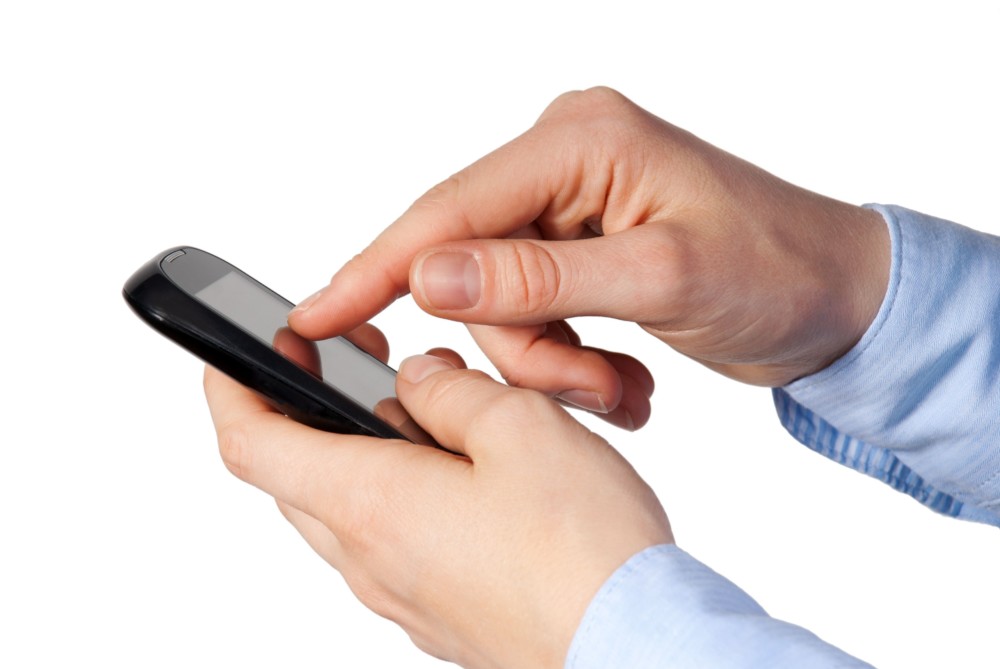By Jonathan Takiff
Philly.com
WWR Article Summary (tl;dr) Research suggests that maintaining a “sustained focus” becomes harder for excessive smartphone users. Also, that the mere presence of a cellphone sitting on the table while a person is being interviewed can impact cognitive performance.
Philly.com
Might as well face it, we’re addicted to more than love, intoxicants, and gambling.
Far more prevalent and pervasive may be our addiction to smartphones.
A new study by IAB Global Research found that nearly two-thirds, or 63 percent, of smartphone users worldwide look at their devices every 30 minutes or more. More than a fifth, 22 percent, tap into their phones every five minutes. Assuming 10 hours off for sleep, that’s still 168 times a day.
And not by accident. Silicon Valley programmers tweak phones and apps to make you check them often. So argues Tristan Harris, a computer wiz and scene insider who sold his business to Google, then tried to do right as the company’s designated Design Ethicist.
Now running the nonprofit Time Well Spent, Harris says smartphone technology is stoked with incremental rewards akin to the enticing payoffs of a slot machine: Ploys to keep you hanging around.
For example, sit through one Netflix episode or YouTube video and you’re rewarded with the next one starting automatically in a few seconds. Binge all night! It’s a bottomless pit.
Whenever a LinkedIn pal rates you worthy at, say, “communications,” you’re auto-nudged to return the compliment.
And connect with his friends.
All that internet “love” you’ve been feeling is a devil in disguise. It’s easy to be swept up in the acceptance and joy (from the dopamine kicking in), after a torrent of Facebook “likes” come in for your cute cat candid. So then, craving more, you post even stupider pet tricks.
Students, take note. Those instant messaging study breaks you keep taking will likely lower your GPA. So notes a Frontiers in Psychology report on “Smartphones and Cognition” newly authored by Temple University Department of Psychology’s Henry H. Wilmer, Lauren E.Sherman, and Jason M. Chein.
Other research work cited by the team suggests that maintaining a “sustained focus” becomes harder for excessive smartphone users. Also, that the mere presence of a cellphone sitting on the table while a person is being interviewed (or, perhaps, briefed on international affairs?) can impact cognitive performance. Gotta tweet!
What’s a body to do? Harris has good suggestions for breaking the smartphone habit. So does Adam Alter, a marketing and psychology professor at New York University and author of the amusing and alarming Irresistible: The Rise of Addictive Technology and the Business of Keeping Us Hooked.
More good advice comes from Alon Shwartz, a lifelong (since age 5!) computer wiz, entrepreneur, and father of three, who argues for kids having a hand in their own phone management destiny.
Sanity savers: For starters, Alter recommends simply putting your phone in a drawer for several hours. Not so hard, if you don’t forget where you hid it.
He also suggests “defanging” your smartphone. Dig into the device’s settings and turn off all notifications that allow screen pop-ups and “dings” when you’ve got email. Stuff that perks up ears, makes you salivate. Just like Pavlov’s dogs!
“Interruption is good for business,” adds Harris. “Companies know messages that interrupt people immediately are more persuasive at getting people to respond than messages delivered asynchronously.”
Beware the “just one click” come-ons, warns Harris. “Virtually all engagement websites use this trick. … TripAdvisor asks for a single click review — ‘How many stars?’ — while hiding the three-page form behind the click.”
Another con job? The false impression of “choice” when a list of user options runs the gamut from A to C. The menu makers win, argues Harris, “no matter what you chose.”
Hide colorful app icons, the ones you tap habitually, watchdogs counsel. Bury the little buggers inside a folder on the third screen. “The only way you should ever access those apps you find to be particularly addictive is to search for them by name,” rationalizes Alter.
Harris suggests enabling a gray-scale screen (in settings) on your phone. When viewed in black and white, icons for Instagram and Snapchat aren’t as enticing.
Eliminating the cheap psychic rewards earned after a Facebook posting can also reduce screen dependency. Ben Grosser enabled this with his free app Demetricator. It calmly reports “You have likes” or “This has been shared” without offering the exact metrics that would keep you coming back for updates.
Numerous apps and routers (and newly, Xfinity’s xFi Wi-Fi internet service) offer to put connected devices on a timer, shutting off phones during dinner and homework hours.
To counteract the insanity of texting while driving, Apple’s forthcoming iOS 11 will include a new blocking feature called Do Not Disturb While Driving, already available in third-party apps.
But Shwartz argues that these handcuffs don’t stop savvy kids, “who know far more about technology than you do.
They will fight back and they will find a way out of any virtual prison you put them into — they will simply Google it.” Plus, he warns, “by resorting to parental control apps, you’re not teaching them how to manage their own time, which means you’re not preparing them for the future.”
His solution? unGlue — a software-based rationing system that lets kids take charge to budget their screen time, build up credits (say, with “chores”) and even to “roll over” leftover minutes for a rainy day. After a 14-day free trial, this monitoring service costs $10 a month, or $80 for an annual subscription. Five months into its soft-launch, Shwartz, the app’s co-founder, says he’s already received “more than 1,500 fervent ‘bless yous’ from parents, for giving back their children.”














































































































































































































































































































































































